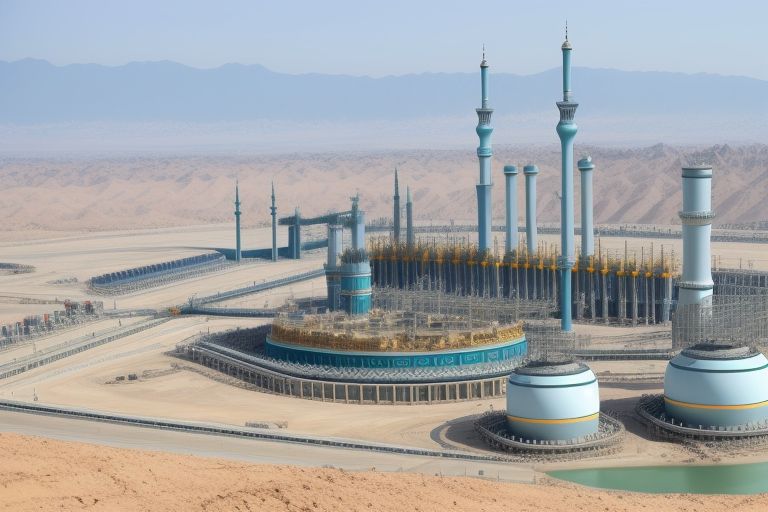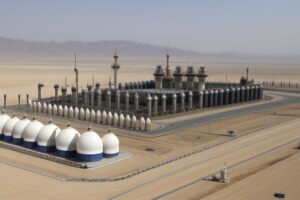The Rich Tradition of Saudi Arabian Coffee
Introduction to Saudi Arabian Coffee
Saudi Arabian coffee, or Gahwa, holds a central place in the culture and daily life of the Kingdom. Known for its rich aroma, distinctive flavor, and centuries-old traditions, Saudi coffee is much more than just a beverage—it is a symbol of hospitality, social bonding, and cultural pride. Coffee in Saudi Arabia is deeply embedded in the country’s history and is an integral part of Saudi Arabian customs. From the traditional serving rituals to the use of spices, Saudi coffee is a unique and cherished drink that reflects the Kingdom’s heritage and values.
The History and Significance of Saudi Coffee
The tradition of drinking coffee in Saudi Arabia dates back centuries and has evolved alongside the social and cultural fabric of the region. Coffee was first introduced to the Arabian Peninsula through trade routes, and it quickly became a staple in the daily lives of people in the region. It is believed that coffee was first consumed in the 15th century in Yemen, and from there, it spread to Saudi Arabia and other parts of the Arabian Peninsula.
Saudi coffee holds significant cultural importance in the Kingdom. It is traditionally served during important social gatherings, such as weddings, family gatherings, and ceremonial events. Offering coffee to guests is a gesture of hospitality and respect. The preparation and serving of coffee are often considered a mark of honor, and the act of sharing a cup of coffee is seen as a symbol of friendship and unity.
Traditional Saudi Coffee: Ingredients and Preparation
Traditional Saudi coffee is made from lightly roasted Arabic coffee beans, which are brewed with a blend of aromatic spices such as cardamom, cloves, and saffron. The addition of these spices gives Saudi coffee its distinctive flavor profile, which is both fragrant and slightly bitter, with a hint of sweetness. Unlike Western coffee, which is typically served with milk or sugar, Saudi coffee is often served black, allowing the natural flavors of the coffee and spices to shine through.
The preparation of Saudi coffee is a ritualistic process. The coffee is traditionally brewed in a long-necked pot called a dallah, which is made from brass or stainless steel. The dallah is used to boil the coffee and infuse it with the spices. Once brewed, the coffee is poured into small, handleless cups called finjan, which are typically served to guests in a specific sequence. The server will often pour the coffee in a way that ensures every guest is offered a small amount, and guests are expected to drink it without conversation until they have finished their cup.
The Role of Saudi Coffee in Hospitality
In Saudi Arabian culture, hospitality is considered a fundamental value, and coffee plays a central role in this tradition. Serving coffee to guests is seen as a way of showing warmth and respect. It is common for hosts to offer multiple cups of coffee to their guests, ensuring that they feel welcomed and honored. In many cases, guests are also offered dates alongside the coffee, further enhancing the experience.
The ritual of serving coffee is often accompanied by specific gestures. For example, it is customary for the guest to signal when they have had enough by shaking their cup gently. If the cup is left empty, the host will refill it, and if the guest does not want more coffee, they may gently shake their cup to signal that they are satisfied. This exchange adds to the feeling of hospitality and reinforces the bonds between host and guest.
The Cultural Significance of Coffee in Saudi Arabia Today
Today, Saudi coffee remains an important part of the Kingdom’s identity. While the method of preparation has evolved over time, the essence of the tradition remains intact. In recent years, coffee culture in Saudi Arabia has grown even more prominent, with coffee shops and cafes becoming popular spots for socializing. These cafes often serve a variety of coffee drinks, including the traditional Saudi coffee, alongside modern variations such as espresso and cappuccinos.
The rise of local coffee brands has also contributed to a renewed interest in Saudi coffee. Many businesses are now dedicated to sourcing and roasting high-quality Arabic coffee beans, promoting the traditional Saudi coffee experience to a new generation of coffee enthusiasts. Additionally, events such as the Saudi International Coffee Exhibition highlight the Kingdom’s growing coffee industry and showcase the role of coffee in the country’s culture.
The Economic Impact of Coffee in Saudi Arabia
Saudi Arabia’s coffee industry is not just a cultural asset but also an economic one. The country is a key player in the global coffee market, both as a consumer and as a producer. The demand for high-quality Arabic coffee has led to a growing coffee trade in the region. Saudi Arabia imports large quantities of coffee beans from countries such as Ethiopia, Yemen, and Brazil, and the coffee industry has become a significant part of the Kingdom’s economy.
Additionally, Saudi Arabia is increasingly investing in coffee-related businesses, from cafes and roasteries to coffee equipment suppliers. The coffee culture in the Kingdom continues to grow, and this growth contributes to job creation, tourism, and the overall diversification of the economy.
Conclusion
Saudi Arabian coffee is much more than just a beverage—it is an integral part of the Kingdom’s cultural heritage, representing hospitality, social connection, and tradition. The distinct flavors of Saudi coffee, combined with its deep cultural significance, make it a unique symbol of Saudi identity. Whether shared with friends and family or offered to guests as a gesture of respect, Saudi coffee remains a timeless tradition that continues to shape the social and economic landscape of the Kingdom.
If you plan to visit Saudi Arabia for business, understanding the SAUDI ARABIA BUSINESS VISA RENEWAL process is crucial for a smooth stay. Additionally, if you’re just passing through, you can learn more about the TRANSIT VISA FOR SAUDI ARABIA to facilitate your travels.














Post Comment